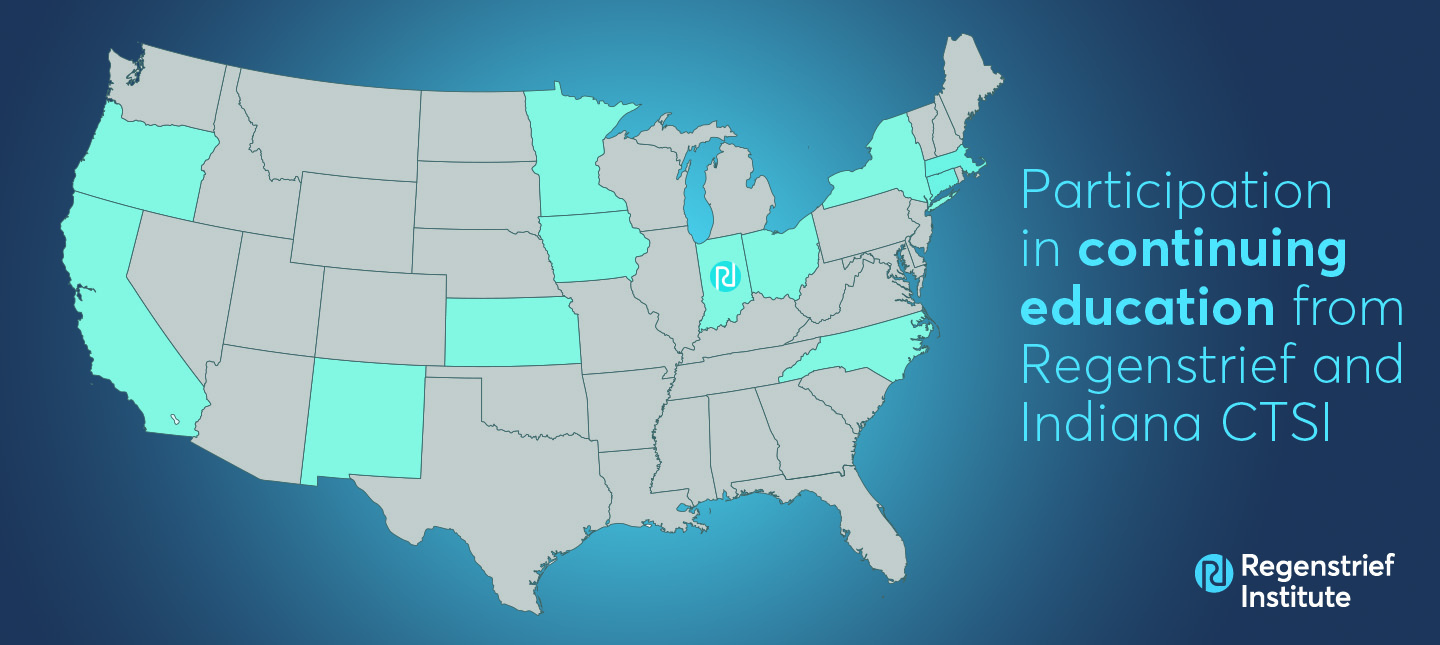60 from Notre Dame, IU, Purdue, Duke, Ohio State, Oregon participate
Amid the work disruptions from COVID-19, Regenstrief Institute and Indiana Clinical and Translational Sciences Institute (CTSI) are providing free opportunities for research professionals to continue their education. After a successful launch to Regenstrief and Indiana University employees, the institute made classes available to Indiana CTSI campuses and other Clinical and Translational Science Awards (CTSA) programs.
The class materials have been adopted from those funded by the Office of the National Coordinator for Health Information Technology (ONC) to continue workforce education. Courses are taught by Jeremy Harper, chief research information officer at Regenstrief and CTSI.
About two dozen Regenstrief and IU staff completed the first two courses in data analytics and project management. Regenstrief Clem McDonald Center for Biomedical Informatics Director of Operations Jennifer Williams, PMP, helped teach the project management class. The classes were so well-received that Harper decided to offer three classes on different subjects and widen access to other institutions.
Sixty people signed up for the second round of courses, which included terminology in healthcare and public health settings, public health IT and introduction to quality improvement and health information technology. There were employees from all CTSI campuses — Notre Dame, Purdue, Indiana University and Regenstrief — as well as institutions such as Duke University, Ohio State University and Oregon Health and Science University.
“These courses are a fantastic resource to advance the skills of the workforce that is involved in advancing healthcare,” said Harper. “I’m pleased to be offering this educational opportunity free of charge to Regenstrief Institute and research professionals from CTSA programs around the country. We are pursuing opportunities to continue and expand this effort.”
About Regenstrief Institute
Founded in 1969 in Indianapolis, the Regenstrief Institute is a local, national and global leader dedicated to a world where better information empowers people to end disease and realize true health. A key research partner to Indiana University, Regenstrief and its research scientists are responsible for a growing number of major healthcare innovations and studies. Examples range from the development of global health information technology standards that enable the use and interoperability of electronic health records to improving patient-physician communications, to creating models of care that inform practice and improve the lives of patients around the globe.
Regenstrief Institute is celebrating 50 years of healthcare innovation. Sam Regenstrief, a successful entrepreneur from Connersville, Indiana, founded the institute with the goal of making healthcare more efficient and accessible for everyone. His vision continues to guide the institute’s research mission.
About Indiana CTSI
The Indiana Clinical and Translational Sciences Institute (CTSI) was founded in 2008 by Anantha Shekhar, M.D., PhD. Recognized as a statewide institute supported by a Clinical and Translational Science Award from the National Institutes of Health’s (NIH) and the National Center for Advancing Translational Science.
Indiana CTSI has research partnerships with Indiana University, Purdue University, and the University of Notre Dame which also includes life sciences, businesses and community organizations. Furthermore, Indiana CTSI engages with the public at every level of research from basic science to patient care.










